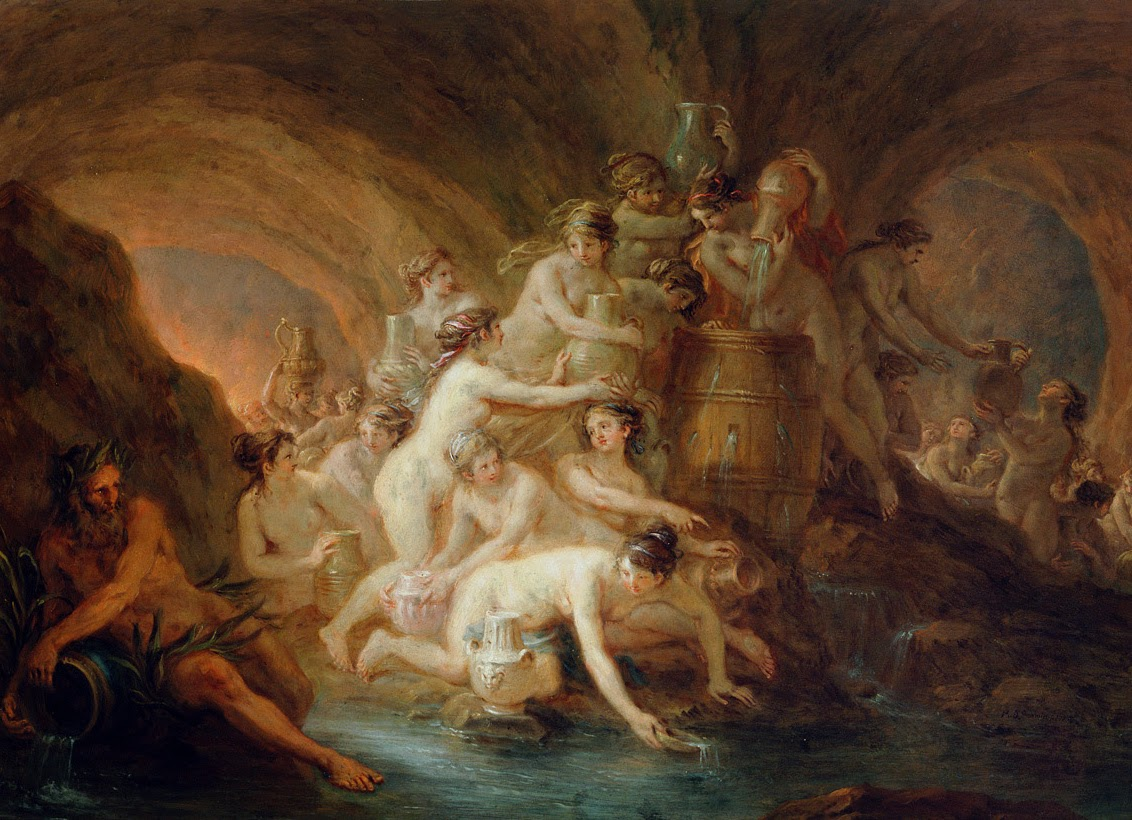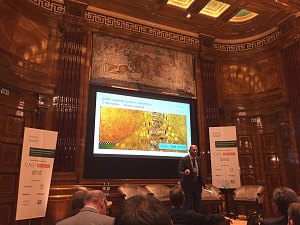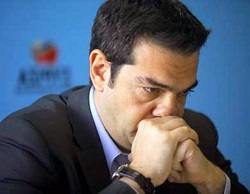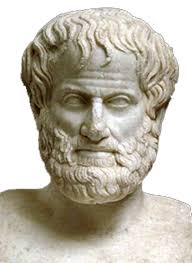
Character eats talent for breakfast.
In Athens
 It was three weekends ago when I experienced the great joy of sharing two whole days together with our 4-year old son, after a long period of business travels. Alas, I experienced tire too; I was exhausted. That experience made me realise the long and tedious effort it takes to properly raise a young boy. My thoughts flew to my wife. I remembered the time when she was breastfeeding our son. I remembered the amazing effort she made to overcome all the initial breastfeeding difficulties and I recalled the answer she gave me when I asked,
It was three weekends ago when I experienced the great joy of sharing two whole days together with our 4-year old son, after a long period of business travels. Alas, I experienced tire too; I was exhausted. That experience made me realise the long and tedious effort it takes to properly raise a young boy. My thoughts flew to my wife. I remembered the time when she was breastfeeding our son. I remembered the amazing effort she made to overcome all the initial breastfeeding difficulties and I recalled the answer she gave me when I asked, Why are you doing this? Why are you taking all this pain?
This is my role,
she answered, I’m a mother now.
Her answer was astonishingly disarming; I had nothing to answer back, or nothing to ask her for; and it generated a chain of challenging internal questions that emerged out of my homo-economicus brain. Questions like: Do mothers have goals? Do mothers somehow ‘invest’ in their children? Do they expect a return on this ‘investment?’
In Vienna
 Surprisingly enough, it was Prof. Subramanian (Subi) Rangan’s seminal speech, in INSEAD Global Business Leaders Conference some days later at Vienna, that shed some light to the previous questions.
Surprisingly enough, it was Prof. Subramanian (Subi) Rangan’s seminal speech, in INSEAD Global Business Leaders Conference some days later at Vienna, that shed some light to the previous questions.
After Subi’s enlightening lecture, I found myself discussing with a friend in the event’s lunch break, about similar issues. Issues like: How should we raise our kids? Should we give priority in hard skills or in soft skills? Should we teach our pre-school youngsters math, alphabet, music, and other cognitive skills or should we teach them non-cognitive (soft) skills?
The friend was familiar with the work of the Nobel-prize Economist James Heckman. Until that time I had not a clear understanding of how our character is shaped. Is it written in our genome? Is it something that we can do to shape our character?
Character is a skill.
Heckman suggests that character is a skill. A skill acquired during the first 5 years of our life.
The European current business context
In our business context we have goals, we are making investments, and definitely we expect a return out of these investments. But is it enough? Volkswagen, definitely had strategic goals. Globo Plc. also had goals and expectations on returns. The two companies - a big global automaker and a small hi-tech - both failed. The same happened with the Greek banking system; the same happened with the Greek State.
Globo Plc. was a company with employees and managers full of talented young, genius engineers, but as it turned out talent is only a necessary condition for success; it is not a sufficient one.
Trying to deal with the crisis in Greece during the last few years, I have discovered many new facets of my character - and I have already written quite a few years in my ‘flight logbook.’ I experienced the collapse of my mental maps in front of the unexpected reality. I realised first-hand the old saying We are like tea bags; we don't know our own strength until we're in hot water.
I learned that in tough situations talent itself is not enough. My talents and my cognitive knowledge somehow were not there to help me when I need them most.
Hemingway once said there are no failures of talent, only failures of character.
As Bill Flanagan has put it We all want to be judged when we’re at our creative best. But the real test is how good we are when we’re at our creative average. Hemingway once said there are no failures of talent, only failures of character.
Some times I’m feeling that in the Greek market there are forces that are working against our efforts for value creation, and it is our political leaders that generate these forces. I’m feeling like the Danaides, condemned by the Gods, endlessly to pour water, to fill a leaking barrel.
Value creation requires independence and courage.
 It was only during these times that I understood what the great teacher Kevin Kaiser meant (with his unique Canadian way) when he was navigating us to the epic search of truth, to a real deep understanding of finance, to a real deep understanding of nature:
It was only during these times that I understood what the great teacher Kevin Kaiser meant (with his unique Canadian way) when he was navigating us to the epic search of truth, to a real deep understanding of finance, to a real deep understanding of nature: Your job guys as business leaders is a relentless continuous effort to make decisions on the opportunity cost; only when you achieve it, you’ll create value;
to continue, …and always remember what value creation requires from you; it requires independence and courage.
Today, I call these traits ‘character.’
The Greek current political context
 In the political context, Greek government has a time-bounded agreement with the European institutions (ex-Troika) on specific goals to be achieved. On Tuesday morning, November the 10th, our prime minister, during a cabinet assembly, asked from his ministers to deliver on these “imposed institutional goals”, and also to deliver in some additional ‘local’ goals to mitigate the austerity effects coming out of the first goals. Even if we understand this logic (or pretend to understand it), is it enough?
In the political context, Greek government has a time-bounded agreement with the European institutions (ex-Troika) on specific goals to be achieved. On Tuesday morning, November the 10th, our prime minister, during a cabinet assembly, asked from his ministers to deliver on these “imposed institutional goals”, and also to deliver in some additional ‘local’ goals to mitigate the austerity effects coming out of the first goals. Even if we understand this logic (or pretend to understand it), is it enough?
Are goals enough?
Greek government has goals (hopefully); VW had also goals. But even if the political or corporate goals achieved, the only thing we can claim is performance. Performance, either for the enterprise or the government, but will we achieve progress for our society?
as Subi wondered?
So, if goal setting is not enough for the case of Volkswagen, or for the case of Greek government, then what else is needed? It seems that we need characters that can play their role; the role of the independent board member, the role of the courageous political leader.
As Subi put it enterprises and business leaders should integrate two strategies. A market strategy that will drive performance, and at the same time a non-market strategy that will drive social progress. And the later requires character. Character to deliver on our role, not only on our goal.
We will achieve our goal, only if we play our role!
More specifically in Greece, we as business leaders, have to sense our role in society; we have to demonstrate to our new left government that we are agents of social progress; we have to show that business is a force of good.
Our political leaders have to trust us to create value for our businesses and our society at large by designing the right system that will drive the Greek economy to bloom. Our politicians have to understand that performance in achieving some targets does not necessaraly generate progress. Political talents can achieve performance on goals, but it is the character of the political leader that will move any country ahead.
Greeks and the other European political leaders do their best to reduce the competitiveness in Europe with all kind of regulations and protection of the workforce, instead of investing in non-market strategies
as Subi put it; to continue In Europe governments don’t trust businesses and regulate; in US businesses don’t trust government and lobbying...
____________.____________
I will paraphrase Aristotle saying that there is only one way to avoid criticism, conflict and friction in our businesses and our governments, in the board room and the cabinet:
Do nothing, say nothing, and be nothing!

Everything else requires character.
From Aristotle, to Greek prime-minister, to VW supervising board, to yours truly:
Christos Rados is an executive leader in the professional engineering services industry. He is an entrepreneur, ambitious giver, designer, engineer, programmer, scrum fun, and value creation lover. He has abductive reasoning and synthetic intelligence.Without virtue it is difficult to bear gracefully the honors of fortune.
Aristotle 384-322 BC